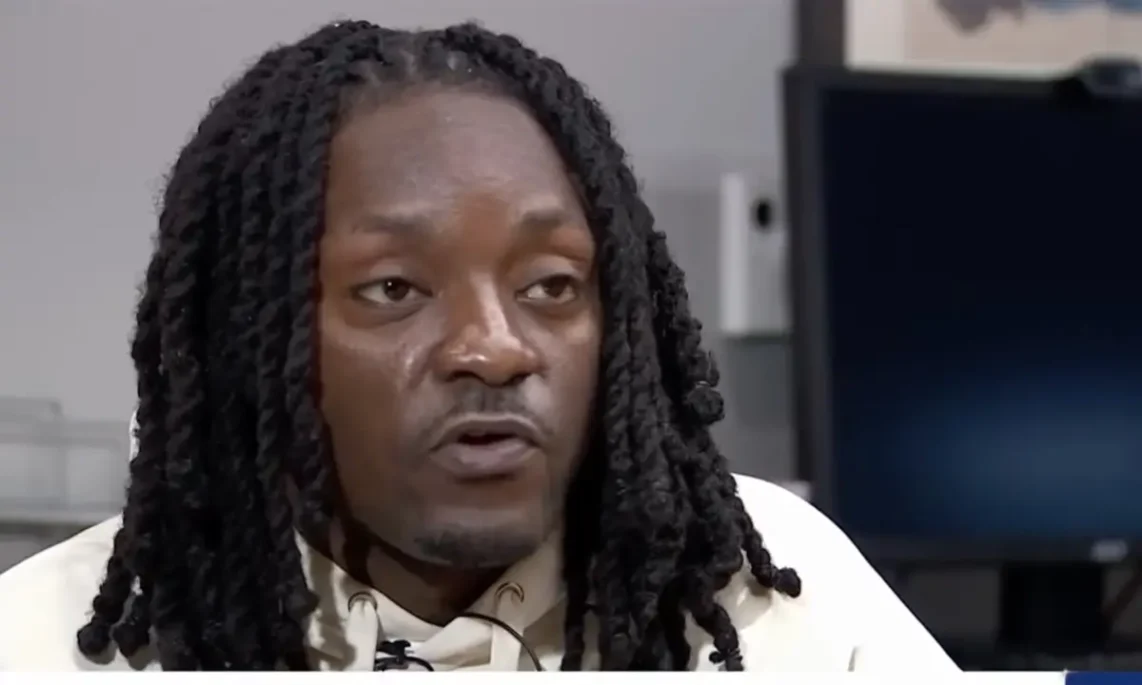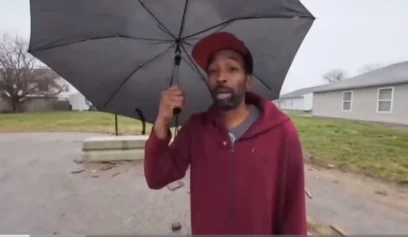After spending 11 years in prison for a murder he didn’t commit, Anthony Robinson was released last week, following his conviction that was overturned due to compelling new medical evidence that proved his innocence.
Robinson, a Chicago Black man, was exonerated on April 8 for a murder conviction dating back to 2013. The case sparked controversy due to the fact that Robinson, who had been shot multiple times in the leg and foot in 2012, was physically incapable of committing the crime.
In fact, the medical evidence, including X-rays and a report from an orthopedic surgeon, showed that Robinson was still recovering from multiple surgeries and was unable to walk without crutches at the time of the crime. But he was still found guilty of the crime.

In 2017 a three-judge panel of an Illinois appellate court upheld that conviction. A subsequent appeal with the medical evidence led an appeals court to send Robinson’s case back to the judge who convicted him. Prosecutors then moved to vacate Robinson’s conviction, resulting in a judge ordering his release.
Robinson told Fox 32 Chicago: “I missed out on so many years, so much of my life. I didn’t understand the system back then and thought the truth would come out right away. I told the police I was shot when they arrested me. I thought they’d see my leg, see me limping, and know I didn’t do it. It shouldn’t have taken this long, but I am just looking forward to going home and starting fresh.”
In 2012, Robinson was the victim of a shooting that resulted in multiple injuries to his leg and foot. The severity of his injuries necessitated numerous surgeries and a lengthy recovery period, leaving him with crutches to be able to walk.
However, in January 2013, despite his physical incapacitation, Robinson was identified by police as the suspect in a shooting incident where he was accused of sprinting after Kelvin Jemison at Washington Park Homes, according to Chicago Sun-Times. The incident resulted in Robinson serving an 11-year sentence at Stateville Correctional Center for a crime he didn’t commit.
During the trial, a friend who had been with Jemison at the time of the shooting withdrew his initial identification of Robinson as the shooter. Additionally, two other witnesses testified that the shooter, a short-haired man, did not resemble Robinson, who at the time sported shoulder-length dreadlocks.
In a similar case, C.J. Rice, a Black man from Philadelphia, was convicted for a shooting incident that injured four people, despite his doctor’s testimony that a severe pelvic injury rendered him physically incapable of committing the crime. He was sentenced to 30 to 60 years in prison. However, the charges related to this 2013 conviction have recently been dropped by the Commonwealth of Pennsylvania.
Meanwhile, the two cases shed light on the importance of thorough legal representation and how wrongful convictions impact many people of color. It also underscores the need for effective legal representation and the potential impact of new evidence in overturning convictions.
During Robinson’s trial, two eyewitnesses testified that he was not the perpetrator, per multiple news reports. Despite their testimony, Robinson was sentenced to 55 years in prison, while his two co-defendants were acquitted. He was 20 years old at the time.
However, medical records obtained by the Exoneration Project revealed that Robinson had sustained gunshot wounds to his left leg and right foot months before the crime. And an orthopedic surgeon concluded that it would have been physically impossible for Robinson to commit the crime, given the extensive surgery performed shortly before the incident.
According to Fox 32, the medical evidence, combined with several additional eyewitnesses failing to identify Robinson and the confession of the actual perpetrator to multiple individuals, led to the Cook County State’s Attorney’s Office vacating Robinson’s conviction and dropping all charges.
Patricia Robinson, Anthony’s aunt, was confident that he’d be released. “I knew coming into today that the judge was going to make a good decision, a better decision for him,” she told CBS News.
Robinson’s attorney criticized his client’s previous defense lawyer for failing to present evidence that showed it was physically impossible for him to be the shooter.
“We are incredibly grateful to State’s Attorney Foxx and her office for righting this wrong,” Exoneration Project Attorney Lauren Myerscough-Mueller said after the exoneration, as reported by Fox 32 Chicago. “They did exactly what a prosecutor should do in this situation – they reviewed the evidence, undertook their own investigation, and independently determined that Mr. Robinson is innocent. It is a travesty that it took 11 years for the truth to come to light, but this is a good day for justice in Chicago. Mr. Robinson is thrilled to finally be vindicated and is eager to rebuild his life and make a difference in the world.”
Lauren Myerscough-Mueller described the pain Robinson felt during the trial and imprisonment. “He told me that while he was going through the trial and his time in prison, he kept thinking that his whole life had been like this, a very tough life,” she said, as reported by the Chicago Sun-Times. “But what kept him going was knowing that he was going to come out from under it, because bad things had happened to him, and he always had come through it.”


